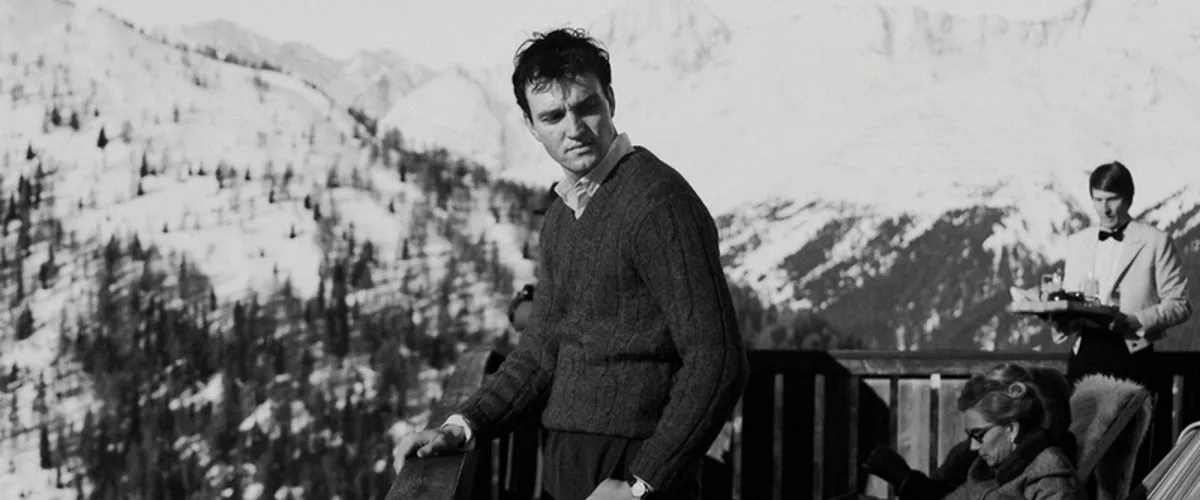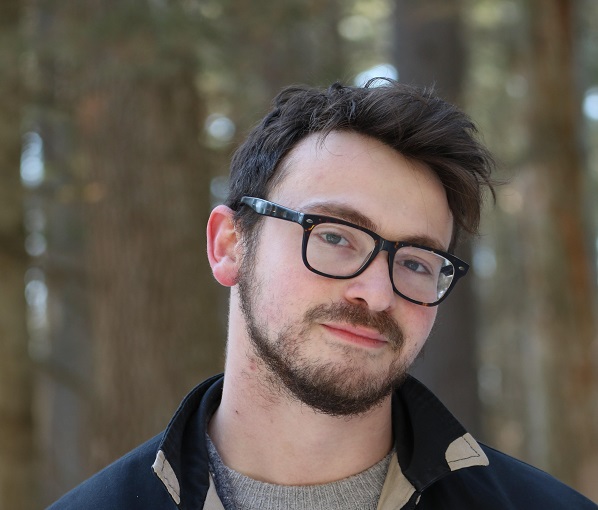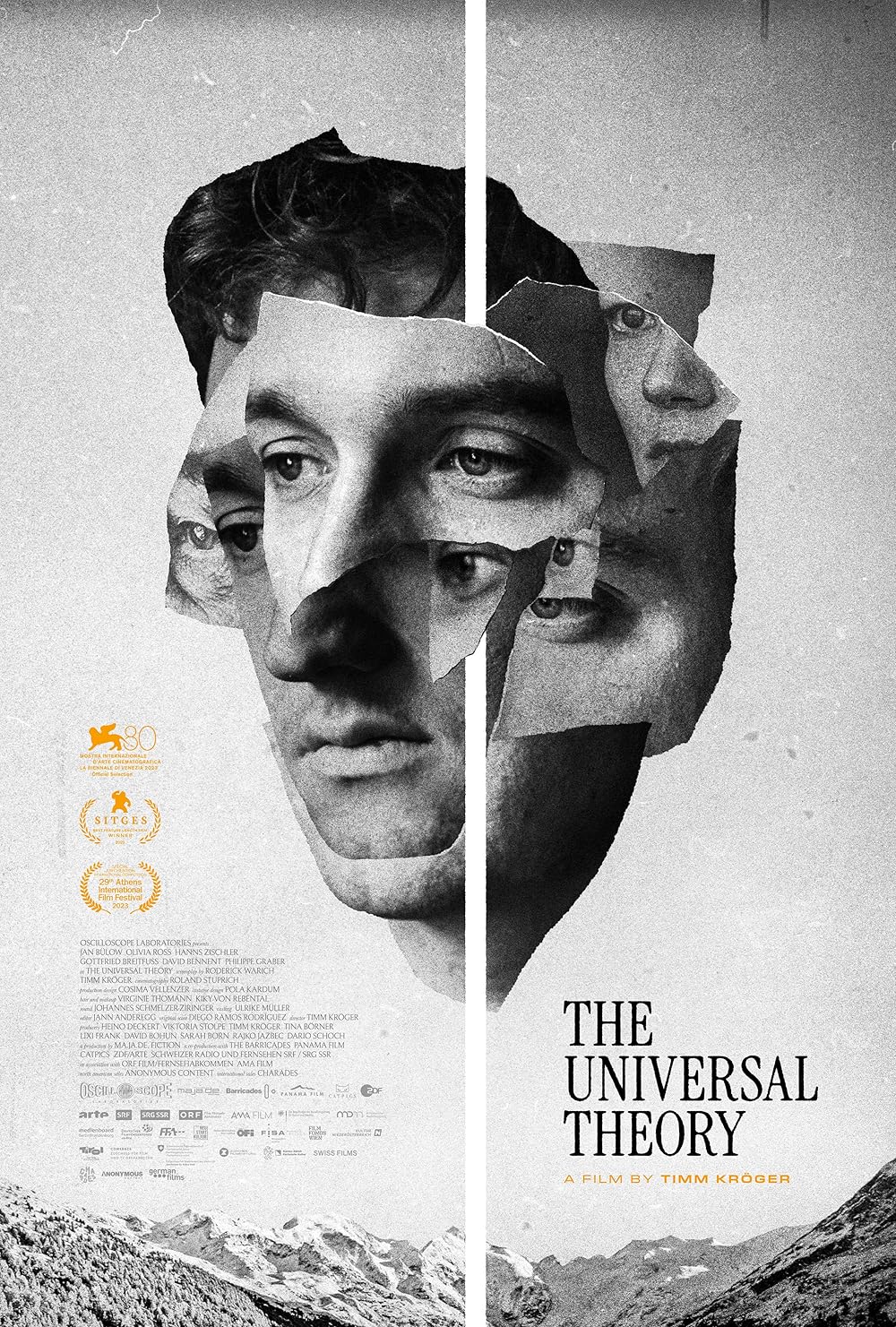A metaphysical mystery from Germany, Timm Kröger's "The Universal Theory" plays out in the shadow of the Swiss Alps, where a young physicist attends a scientific congress devoted to the study of quantum mechanics, only to find himself drawn into a spiral of paranoia, conspiracy, and murder.
Like most everything about Kröger's impressive yet confounding feature debut (in theaters; from Oscilloscope Laboratories), the mountainous region is at once a source of intrigue and a point of reference—most pointedly to Thomas Mann's "The Magic Mountain," with its alpine sanatorium setting and succession of existential musings. Though Alfred Hitchcock's "Spellbound," in particular the iconic sequence where tracks in the snow precipitate an avalanche of repressed memory as Gregory Peck and Grace Kelly ski down a precarious slope, exerts an even more gravitational pull.
For Johannes (Jan Bülow), who has yet to publish his long-gestating thesis on the potential existence of multiple universes, traveling to the inaugural 1962 conference alongside his doctoral supervisor, Dr. Strathan (Hanns Zischler), presents a prime opportunity to hear a noted Iranian scientist's "groundbreaking theory of quantum mechanics," one he's certain will further his own research.
But when, in the first of a series of peculiar and unexplained occurrences up in the mountains, the scientist never materializes, Johannes is left to his own devices. The summit comes to a standstill, and as other attendees take to the slopes, Johannes encounters another academic, Dr. Blumberg (Gottfried Breitfuss), who takes an unexpected interest in his theory, much to Strathan's contempt. Both scientists were students of Heisenberg decades prior, and Blumberg, in particular, seems troubled by the Nazi scientist's complicated legacy.
Johannes himself is more interested in a beautiful jazz pianist, Karin (Olivia Ross), whom he first spots at the reception and with whom he senses a strange familiarity. Though she rebuffs his advances at first, Karin soon betrays knowledge of Johannes' past that should be impossible, and the two begin a brief affair, his interest escalating into fixation. After a scientist is found dead, his body inexplicably disfigured, only to reappear alive later on, Johannes begins a most informal investigation, uncovering more clues—strange cloud formations, sinister government agents, passageways inside the mountain, irregular avalanches—that only serve to deepen his distress and confusion.
At its heart a work of high pastiche, reflecting the romantic obsession of "Vertigo," the suspense of "The Man Who Knew Too Much," and the postwar desperation of "The Third Man" — and particularly giving itself over to indulgence through the cresting, Bernard Herrmann-esque swirls and swells of Diego Ramos Rodriguez's orchestral score, which counters the film's eerily aloof, distended sound design — "The Universal Theory" prioritizes atmosphere over explanation, to intoxicating but diminishing effect. As Johannes chases wisps of echoes through the maze Kröger has devised, he rarely grasps more than glimpses of answers to his questions and the audience along with him.
Filmed in high-contrast black-and-white and lensed in widescreen CinemaScope by its talented director of photography, Roland Stuprich, to evoke classic film noir of the 1940s and '50s, the film is visually evocative without convincing us that we're actually watching a product of that era. Instead, the film's studied effect, and the stilted nature of its performances (including from two leads whose doomed romance feels more fatalistic than fated, and too quickly), combine with the nitrate charge of its period aesthetics to produce a fugue-like frisson. For all its investigation of rifts in reality and parallel universes, "The Universal Theory" provides proof only of the truth's inherent slipperiness — and of its director's great affection for his influences. Given this, it's fitting that Kröger reaches more to evoke a memory of classic cinema, a dream of history, than the genuine article. It's an illusion he sustains with conviction, but the convoluted tangle of his narrative ends up feeling more like a trick than like magic.
"The Universal Theory" is in theaters Sept. 27, via Oscilloscope Laboratories.




















